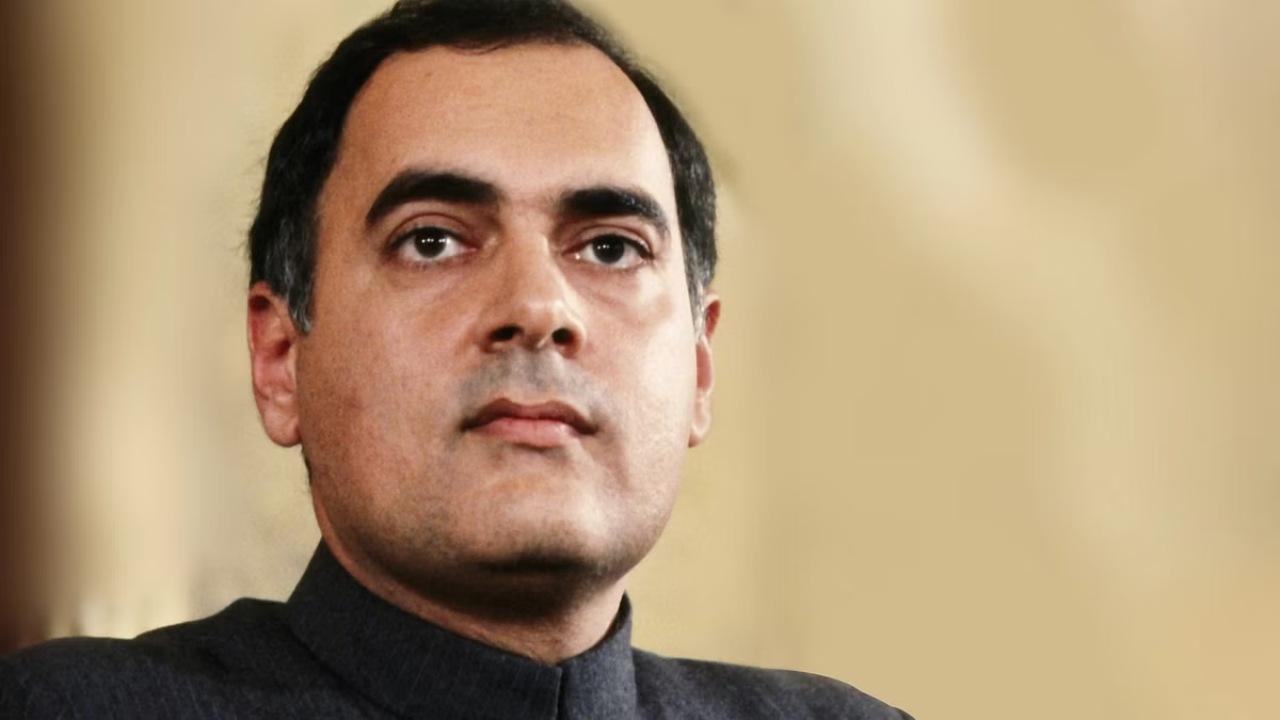Congress Parliamentary Party (CPP) chairperson Sonia Gandhi, along with Congress General Secretary Priyanka Gandhi Vadra, Robert Vadra, and Congress National President Mallikarjun Kharge, paid floral tribute to former Prime Minister Rajiv Gandhi on his 79th birth anniversary at 'Veer Bhumi' in the national capital on Sunday

File photo
Congress Parliamentary Party (CPP) chairperson Sonia Gandhi, along with Congress General Secretary Priyanka Gandhi Vadra, Robert Vadra, and Congress National President Mallikarjun Kharge, paid floral tribute to former Prime Minister Rajiv Gandhi on his 79th birth anniversary at 'Veer Bhumi' in the national capital on Sunday.
ADVERTISEMENT
Party leaders and workers also gathered to pay their respects to Rajiv Gandhi outside Veer Bhumi earlier in the day.
Congress leader Rahul Gandhi, who is on a visit to Ladakh, remembered his father and former Prime Minister Rajiv Gandhi in a post on social media. He expressed his admiration for his father's dreams for India and his commitment to understanding the struggles and dreams of every Indian.
To mark Rajiv Gandhi's birth anniversary, a prayer meeting was held at the banks of Pangong Lake. Rahul Gandhi embarked on a bike ride to Pangong Lake in Ladakh to celebrate his father's birthday, expressing his father's sentiment that it's one of the most beautiful places in the world.
Also read: Rajiv Gandhi Birth Anniversary: Why the day is celebrated as “Sadbhaavna Diwas”
Rajiv Gandhi, who took over the charge of the Congress in 1984 following the assassination of his mother, Prime Minister Indira Gandhi, became India's youngest Prime Minister at the age of 40 in October 1984. He served as the Prime Minister of India until December 2, 1989. Born on August 20, 1944, Rajiv Gandhi was tragically assassinated during an election rally in Tamil Nadu on May 21, 1991, by a Liberation Tigers of Tamil Eelam (LTTE) suicide bomber.
The heart-wrenching incident that shook the nation and left an indelible mark on Indian history. The assassination of Rajiv Gandhi was reportedly a result of complex political and regional tensions that culminated in a devastating act of violence. The former Prime Minister of India was tragically assassinated on May 21, 1991.
Rajiv Gandhi, the sixth Prime Minister of India, played a crucial role in modernizing the country and bringing about technological advancements. His leadership saw the expansion of education and technology sectors, aiming to bridge the gap between rural and urban areas. However, his tenure was marred by controversies, including the Bofors scandal.
The assassination took place during an election rally in Sriperumbudur, Tamil Nadu. A suicide bomber associated with the Liberation Tigers of Tamil Eelam (LTTE), a militant organization from Sri Lanka, detonated an explosive device, killing Rajiv Gandhi and many others. The LTTE's involvement was a culmination of various factors.
The LTTE sought an independent Tamil state in Sri Lanka, citing discrimination against the Tamil minority by the Sinhalese-dominated government. Rajiv Gandhi's government had initially supported the Tamil cause, but as the conflict escalated, he sent Indian Peacekeeping Forces (IPKF) to Sri Lanka. This move led to a strained relationship between the Indian government and the LTTE, which accused Rajiv Gandhi of betraying their cause.
As tensions grew, a conspiracy was hatched to eliminate Rajiv Gandhi. Investigations revealed that the assassination was meticulously planned, involving individuals from both India and Sri Lanka. The suicide bomber, Dhanu, was reportedly a member of the LTTE.
The assassination of Rajiv Gandhi had far-reaching consequences. It left the nation in shock and grief, prompting a wave of condemnation both domestically and internationally. The Indian government launched a massive investigation, leading to the capture and prosecution of those involved in the plot.
Rajiv Gandhi's tragic death underscored the importance of addressing regional conflicts and diplomatic tensions. It also highlighted the grim reality of how political differences can escalate to extreme acts of violence. The nation lost a visionary leader who aimed to bring progress and development. (Agencies)
 Subscribe today by clicking the link and stay updated with the latest news!" Click here!
Subscribe today by clicking the link and stay updated with the latest news!" Click here!







